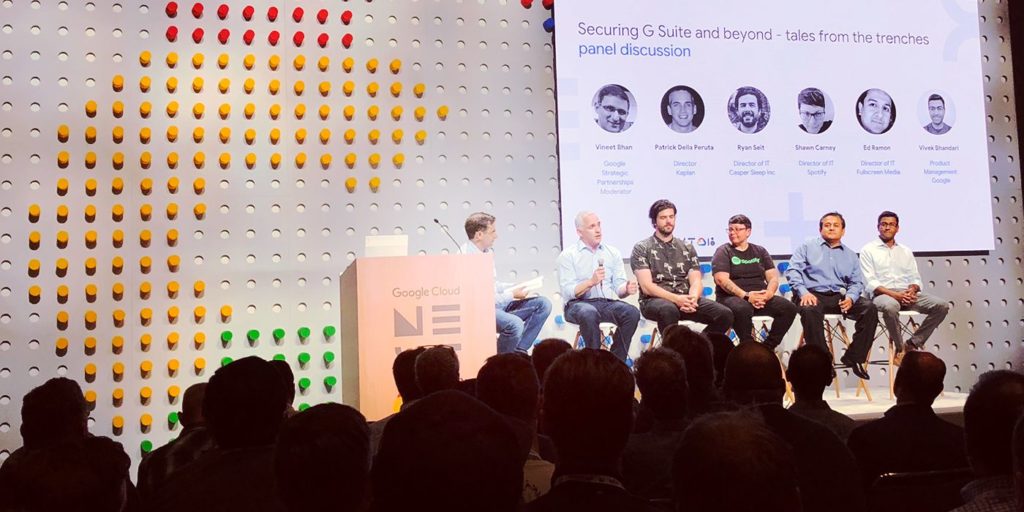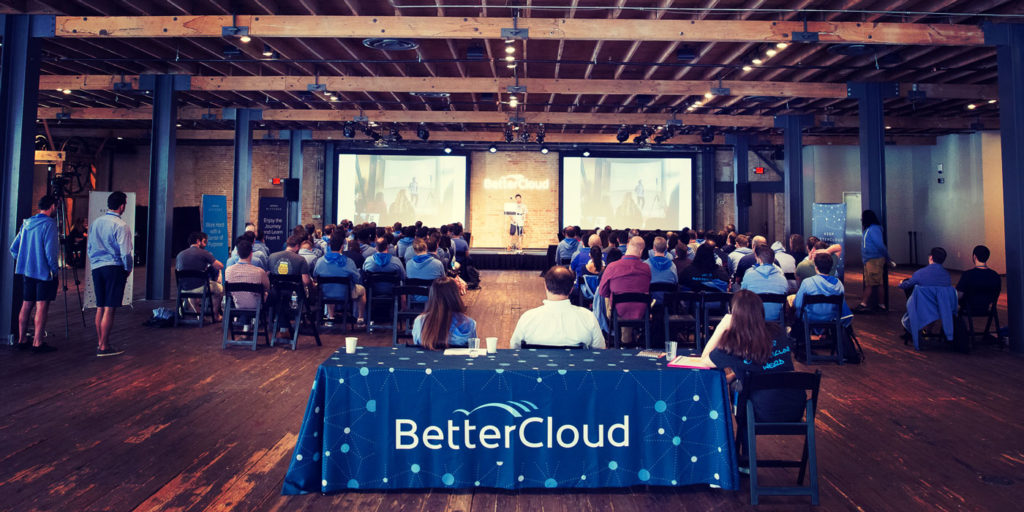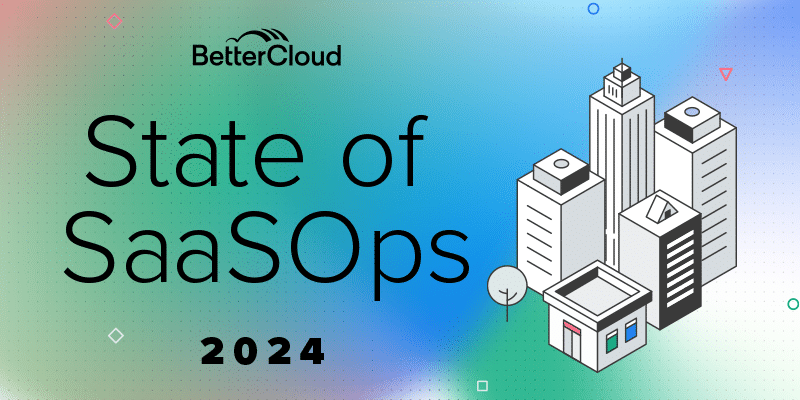Cloud Services Brokerages: Leading the Move to the Cloud
October 10, 2013
7 minute read

 As Google Apps and other cloud services have evolved so to have Google Apps resellers. These resellers have transformed their businesses to align with new challenges companies moving to the cloud or seeking to implement a full cloud strategy encounter.
As Google Apps and other cloud services have evolved so to have Google Apps resellers. These resellers have transformed their businesses to align with new challenges companies moving to the cloud or seeking to implement a full cloud strategy encounter.
Only a few years ago Google Apps resellers seldom did more than assist with migrations to Google Apps and conduct change management training. Now, the leading resellers have evolved into cloud services brokerages (CSBs) providing their customers not only with data migration and user training, but also with custom application development, integration services and assistance building out an overall cloud IT strategy.
History of Google Apps Resellers and the Evolution of CSBs
The Google Apps Reseller program started in 2009 with a pilot group of 50 partners. This group was made up of early adopters and Google Apps evangelists.
Over the last four years, the program has grown immensely and is now comprised of thousands of partners around the world (the last quoted number is around 6,000, but we believe it to be much higher). These partners include companies that were founded solely to resell Google Apps and other Google products as well as value-added resellers (VARs) who previously specialized in legacy systems. VARs have realized that they must participate in the shift to the cloud or risk losing out on key business. While VARs and newcomers make up the majority of Google Apps resellers, huge organizations like HP, have also gotten into the game.
Today, many of the most successful Google Apps partners have expanded their businesses outside of Google Apps and now resell and provide consulting services for myriad other cloud products.
Migrating to, Setting up and Configuring Cloud Services
Migrating to a Cloud Messaging Platform
As noted, the most obvious benefit of working with a cloud broker comes with the broker’s migration expertise. CSBs have conducted hundreds or even thousands of migrations and are familiar with best practices, migration tools like GAMME (Google Apps Migration for Microsoft Exchange), GAMMO (Google Apps Migration for Microsoft Office) and GAMLN (Google Apps Migration for Lotus Notes) and common technical hiccups that can slow down your move to the cloud. A well-qualified broker will also know how to deal with unique or complicated legacy set ups, how long a particular migration will take, how to read the audit logs coming from migration tools, what can and cannot be migrated over from your existing setup to the cloud and much more.
While factors like experience, referrals, cost and location are probably going to factor into your decision, your ultimate consideration should be choosing a broker with demonstrated success migrating data from your specific legacy systems to the cloud.
Often times the move to a cloud messaging and collaboration system (for our purposes that’s Google Apps) provides the foundation for your entire cloud infrastructure. So whether you’re migrating from Microsoft Exchange, IBM Lotus Notes, Novell Groupwise or even another cloud messaging platform (like Office 365), make sure your CSB has the know-how to conduct a seamless migration.
Working with a broker for your initial migration to Google Apps can also help down the road. A broker who specializes in Google Apps and knows the ins and outs of the suite can effectively display the benefits different aspects of the suite – outside of core features like Gmail and Calendar – may provide. As such, we believe a CSB may actually help their customers adopt more of the Google Apps suite like Google Drive, Sites and even Google+ communities.
Looking Beyond Messaging and Collaboration
Even if you’ve already successfully migrated to Google Apps, there are still tremendous benefits working with a cloud broker can provide.
In a study of our customer base conducted this past August, we found that in companies with more than one thousand users, respondents (IT administrators) believe it will take on average 5.1 years to fully move their IT infrastructure (software for office productivity, collaboration, messaging and business management (CRM, accounting and ERP)) to the cloud.
This is where a cloud services broker can help.
As Google Apps has gained momentum over the last few years and the suite has become more and more sophisticated, millions of organizations have come to see it as a viable replacement for legacy, on-premise messaging and collaboration systems. This transition often coincides with or precedes a full move to the cloud.
Alongside Google Apps, many cloud brokers offer CRM, ITSM, ticketing, infrastructure as a service (ie. Amazon or Google Compute Engine) and other software to help build out your overall cloud strategy. A broker’s expertise can help create a solution and timeline tailored to the specific needs and goals of your organization. And more often than not, working with a CSB will speed up your move to the cloud and minimize many of the headaches a large undertaking like this can entail.
Building out a cloud strategy, if that is in fact your ultimate goal, can be extremely complicated. Going it alone will have you reaching out to several vendors to test numerous products and will ultimately result in multiple contracts, payments, data streams and access points.
On the other hand, building out the same strategy, but with the help of a CSB can remove much of this work and help to streamline the entire process. A trusted broker has already chosen the best in class products and can make appropriate recommendations for a deployment best suited to your needs.
Custom Application Development and Integration Services
If you can’t find the solution you’re looking for in your broker’s arsenal of cloud products, a sophisticated CSB will usually have an in-house team of product developers ready to build custom solutions to fill in the gaps in your cloud stack. Custom development can range from building workflows between systems, creating an intranet or even replacing legacy applications with their cloud counterparts (ie. expense reporting or PTO applications).
While these services usually come with a hefty price tag, outsourcing custom development frees up your internal IT team to focus on more pressing matters within your organization.
Like custom development, a sophisticated CSB will also offer integration services, which come in extremely handy if you’ve created a particularly complicated cloud stack. Your IT infrastructure needs to communicate and often times the different pieces of your infrastructure don’t talk to one another out of the box (ie. Google Apps and Salesforce.com). That’s where integration services come in. Again, by outsourcing this task to a CSB, you can rely on their accumulated expertise and free up time for your IT team to focus on internal tasks only it has the knowledge to execute.
A Single Point of Contact for All of Your Cloud Needs
While data migration and custom development / integration work are extremely valuable, these services are increasingly commoditized across the CSB industry. CSBs who are truly leading the pack now serve as the single point of contact or “one throat to choke” should you encounter any errors with either an individual product or your IT system overall.
Once you’ve built out your cloud stack, you’ll likely need support for one reason or another. Contacting a support technician at a third-party vendor means you’ll have to spend time getting that technician up to speed on your IT system. However, your particular CSB will be familiar with the ins and outs of your IT setup meaning you can skip playing catch up and spend more time getting to the root of the issue.
When it comes to solving particular problems, rather than having to contact a vendor yourself, your CSB can reach out to the vendor to get to the bottom of the issue faster. Working with a CSB who has built relationships with various vendors means they’re likely to get quicker, more detailed support. Plus, if the vendor doesn’t have a quick solution, your CSB will work with you to remedy the situation.
Moreover, this concept of CSB as a singular contact point to many independent software vendors consolidates what would have previously been a confusing array of multiple contracts, bills, support technicians and sales reps.
User Training and Change Management
According to our August survey, user attachment to existing legacy software stood in the way of full cloud adoption for nearly one third of all respondents. While any attachment to legacy software is discouraging, we believe that proper change management can sway even the most diehard away from legacy software and to the cloud.
A CSB is an excellent resource when it comes to training your users and even your IT team on new
platforms, services and systems you’ve recently implemented. While change management is often overlooked, it’s actually one of the most crucial pieces to your cloud puzzle. Without the proper training, team members will have trouble adopting new services and practices, meaning your entire transition to the cloud could be for not. Potential roadblocks a CSB can help your staff with include overcoming the “Outlook mindset” as well as helping employees understand the capabilities of Docs and Sheets and the differences between these cloud-based tools and their legacy counterparts. So, make sure to seek out the help of a CSB who will create a training program tailored to your employees’ level of expertise, familiarity and comfort with the cloud.
Change management can also include education on industry trends for the IT department or other interested parties in your company. While we all aim to stay on top of the latest news within our own field, doing so can be extremely time consuming especially while working in a full time position. CSBs naturally have a finger on the pulse of the cloud IT industry and can be great resources to help you discover new trends, products and providers.
Finding the Right CSB
Through our relationships with our customers, we’ve seen that the right CSB can serve as much more than a consultant or reseller. A great CSB can truly guide your organization through this often complicated, overwhelming sea of cloud products leaving you with a fine-tuned, efficient, scalable IT infrastructure.
To learn more about cloud services brokerages or to find a CSB, visit the Google Gooru’s Directory.








